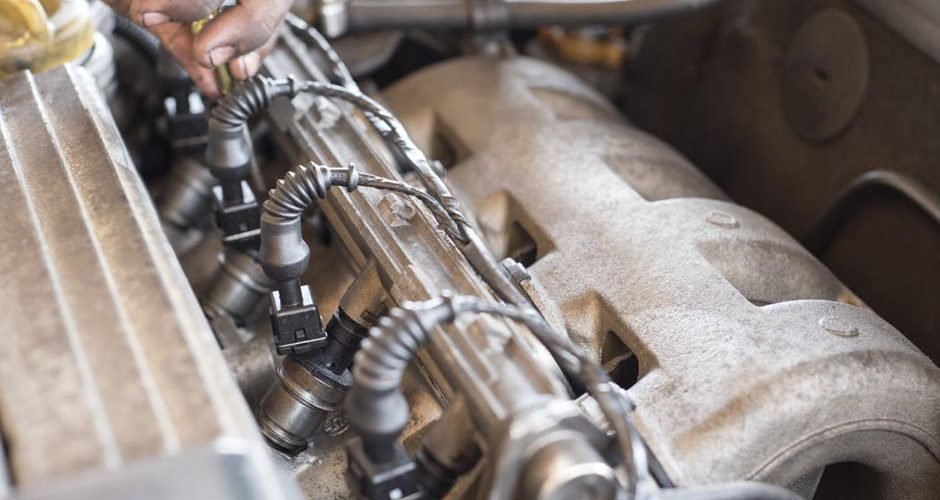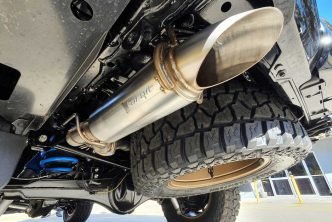Table of Contents
Introduction: The Importance of High-Quality Fuel Injectors and Expertise
Fuel injectors play a critical role in the efficient operation of modern internal combustion engines. Companies like Big Bang Injection, founded in 2012 in Austria, have dedicated themselves to manufacturing high-performance common rail injectors. The founders, Martin Schöppl and Jürgen Tanzer, have a combined 40 years of hands-on experience in common rail injector development at the Robert Bosch GmbH Common Rail Injector Lead Development Facility for commercial vehicles, located in Linz, Austria.
The Role and Function of Fuel Injectors
Fuel injectors are responsible for delivering a precise amount of fuel to each cylinder in an atomized form, optimizing combustion efficiency. This advanced fuel delivery method has replaced the traditional carburetor, resulting in improved engine performance, increased fuel economy, and reduced emissions.
Locating Fuel Injectors in Your Vehicle
Fuel injectors are typically mounted within an engine’s intake manifold, in close proximity to each respective cylinder head. As fuel is injected, it mixes with the incoming intake air and is drawn into the combustion chamber through an open intake valve. This configuration is common for most engines on the market today. However, direct injection engines feature head-mounted injectors, which allow for in-cylinder fuel/air mixing, a design that has gained popularity in recent years.
Distinguishing Between Dirty/Clogged and Faulty Injectors
Fuel injector issues can be broadly categorized into two types: electrical/mechanical failure or clogging. Electrical/mechanical failure occurs when an injector’s electrical circuitry malfunctions or its mechanical components degrade. In contrast, a dirty or clogged fuel injector typically results from carbon buildup, which can obstruct the injector’s tip and impair its performance.
Seven Common Symptoms of a Problematic Fuel Injector
Recognizing the symptoms of a faulty fuel injector is crucial for addressing the issue and preventing further damage. Here are seven common warning signs:
Persistent Misfires
A faulty fuel injector can cause consistent misfires, leading to a rough idle, vehicle shaking, or hesitation during acceleration. The engine may struggle to run smoothly due to the irregular fuel delivery.
Decreased Fuel Efficiency
When an injector fails, it can reduce the engine’s fuel efficiency, forcing you to fill up more frequently. This problem can worsen as additional injectors fail.
Loss of Engine Power
A malfunctioning injector can cause a decrease in engine power, which is more noticeable in smaller four-cylinder engines but can also affect larger “V” configuration engines.
Engine Stalling at Idle
A problematic fuel injector can cause the engine to stall or die when coming to a stop, particularly if the injector is stuck open or continuously leaking fuel. This issue can lead to engine flooding and poor performance.
Strong Fuel Odor from Exhaust
A strong fuel odor from the exhaust could indicate a leaking or malfunctioning injector, causing raw fuel to enter the exhaust system. This issue can lead to increased emissions and potential damage to the catalytic converter.
Illuminated Check Engine Light
An illuminated check engine light may indicate a faulty fuel injector, as the engine control module detects performance issues. To confirm the cause, a diagnostic scan tool can be used to read the specific trouble codes.
Car Jerking or Stuttering During Acceleration
A failing fuel injector can cause a car to jerk or stutter during acceleration due to inconsistent fuel delivery. This issue can lead to a reduction in overall engine performance and a less enjoyable driving experience.
Diagnosing Misfires: Bad Fuel Injector vs Spark Plug
When diagnosing a misfire, it is essential to determine whether the problem is caused by a bad fuel injector or a faulty spark plug. A diagnostic scan tool can be used to read the engine’s trouble codes, which will help identify the affected cylinder. After identifying the problematic cylinder, you can inspect the spark plug and ignition coil. If both appear to be in good condition, the issue may be a faulty fuel injector.
Assessing Fuel Injector Lifespan and Potential Engine Damage
Fuel injectors are designed to last the life of your engine under normal operating conditions. However, factors such as poor fuel quality, contaminated fuel, or lack of regular maintenance can contribute to premature injector failure. A failing fuel injector can cause engine damage, particularly if it is leaking or causing a lean fuel mixture, leading to overheating and excessive cylinder pressure.
Evaluating the Effectiveness of Fuel Injector Cleaner Products
Fuel injector cleaner products can help maintain fuel injector performance and extend their lifespan by removing carbon deposits and other contaminants. These cleaners are typically added to the fuel tank and work by dissolving deposits during the combustion process. While these products can be helpful in some cases, they may not be enough to resolve severe clogging or mechanical issues with the fuel injector.
Estimating Fuel Injector Cleaning and Replacement Costs
The cost of cleaning or replacing a fuel injector varies depending on the make and model of your vehicle, as well as the labor costs in your area. Cleaning a fuel injector can cost between $50 and $100 per injector, while replacement costs can range from $150 to $300 per injector. In some cases, it may be more cost-effective to replace the entire set of injectors, especially if multiple injectors are showing signs of failure.
Deciding Whether to Replace a Single Fuel Injector or the Entire Set
When faced with a faulty fuel injector, you may wonder if it’s better to replace just the problematic injector or the entire set. This decision should be based on factors such as the age and mileage of your vehicle, the condition of the remaining injectors, and the cost difference between replacing a single injector or the entire set. If your vehicle has high mileage and the other injectors show signs of wear, it may be more cost-effective and beneficial to replace the entire set to avoid future issues.
In conclusion, recognizing the symptoms of a faulty fuel injector is essential for maintaining your vehicle’s performance and preventing further engine damage. By understanding the warning signs and taking appropriate action, you can ensure that your vehicle remains reliable and efficient. Companies like Big Bang Injection have dedicated themselves to manufacturing high-quality fuel injectors, emphasizing the importance of expertise and experience in this crucial component of modern engines.





